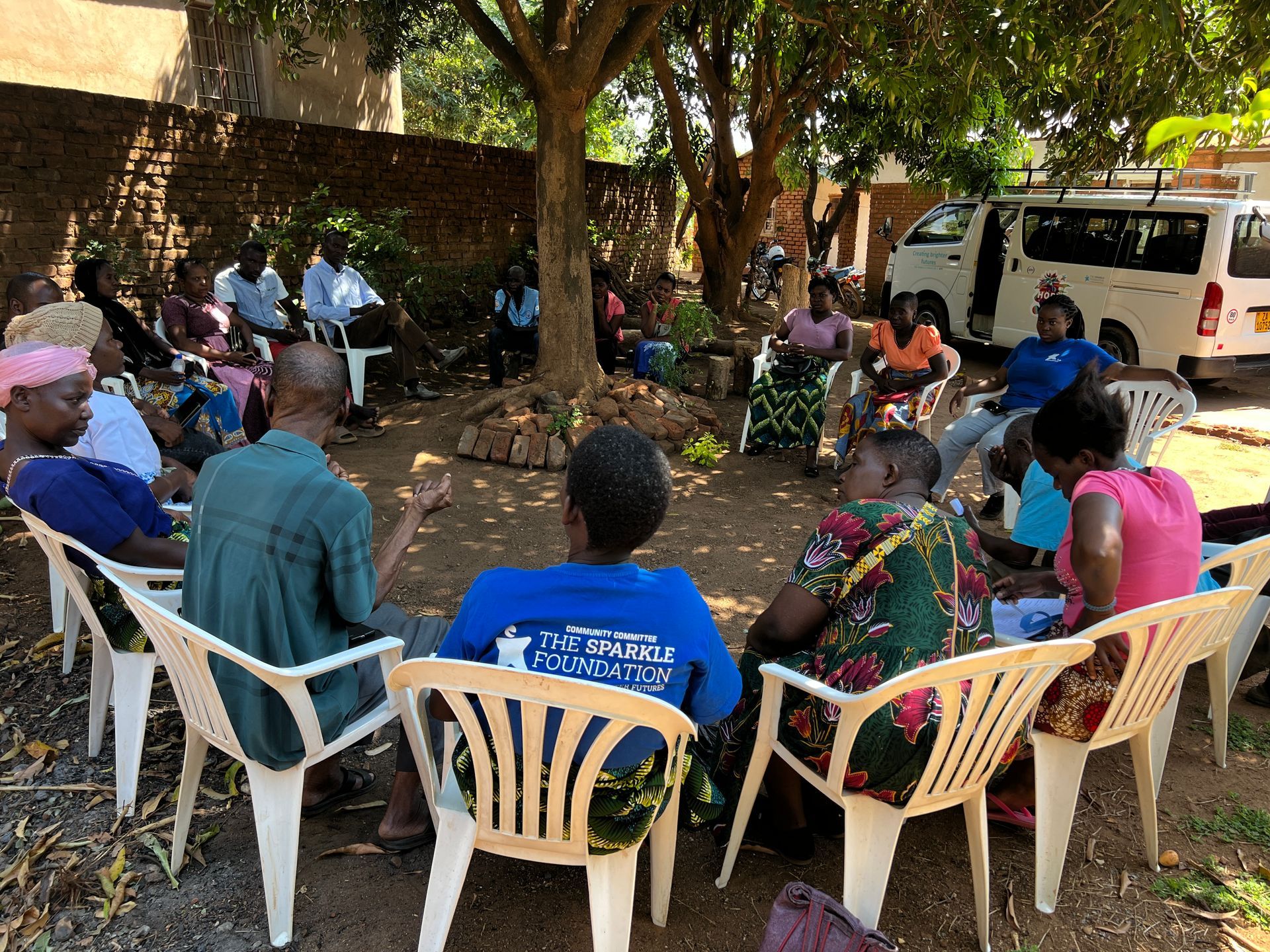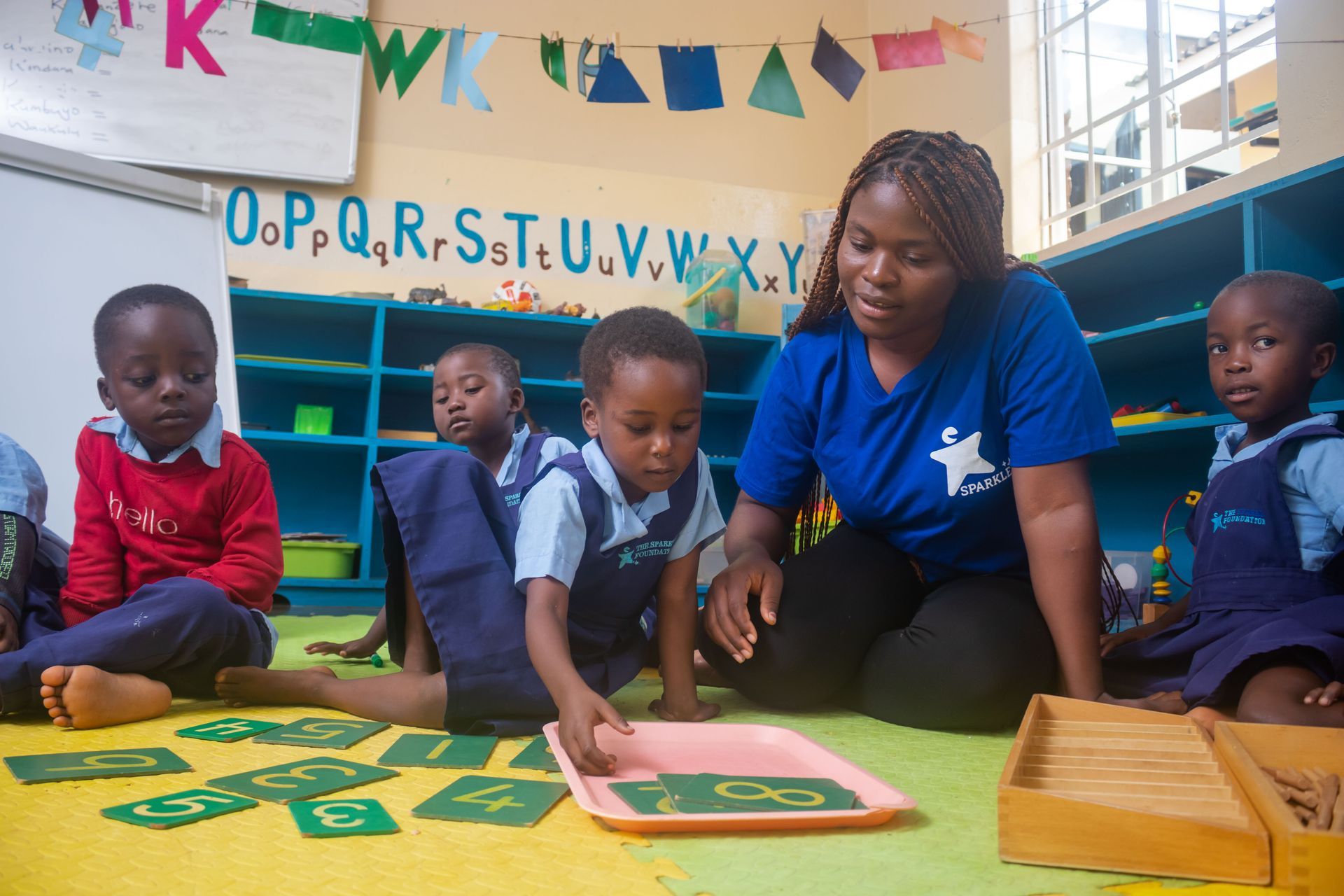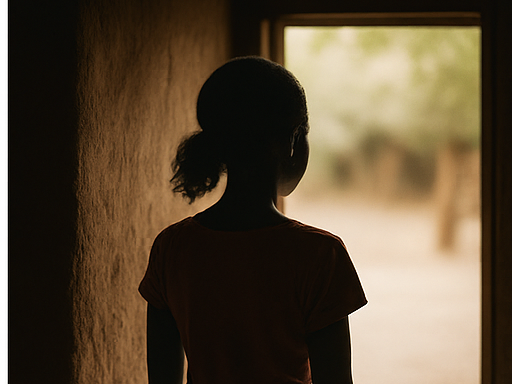Menstrual Health Management (MHM) for Teenage Girls in Malawi: Breaking the Cycle of Period Poverty
By: Priyani Gangopadhyay
In light of the recent World Menstrual Hygiene Day celebrated on 28th May 2025 under the theme "Together for a Period-Friendly World," I have written this article to share what I’ve learnt about the hardships teenage girls in Malawi face when it comes to managing their menstrual hygiene, how it impacts their dignity, daily lives, education, and the inspiring work being done to support them.
Growing up in a high-income country, I, like most teenage girls, have always had easy access to things like sanitary pads, girls' toilets, and cleaning facilities—necessities we often take for granted during our periods. Sadly, for countless teenage girls in low-income countries like Malawi, these basic needs for managing their periods are simply out of reach.
My understanding of this situation significantly deepened after speaking with senior members of The Sparkle Foundation Team. Joshua Ojiezele (Volunteer Coordinator) and Vanessa Hamilton (Project Co-ordinator) kindly shared invaluable insights. I also had the opportunity to speak with Frances Chisi (Community Officer) and Dr Sibongile Ndala (Clinician) who work directly with children in rural Malawi. What I heard from them deeply moved me, and I spent considerable time conducting my own research to truly grasp the heartbreaking realities.
Understanding Menstrual Hygiene Management (MHM)
Menstruation is a natural biological process experienced by the girls and adult women of reproductive age. Menstrual Hygiene Management (MHM) refers to how they access, use, and dispose of menstrual products safely and hygienically during their periods.
Proper MHM is not merely about comfort and cleanliness; inadequate MHM can lead to severe health consequences such as urinary tract infections, genital tract infections, and skin diseases in private areas.2 Furthermore, MHM is intrinsically linked to general health, mental well-being, educational attainment, dignity, and self-esteem, making it not only essential but also a basic human right.
Effective MHM means having access to:
- Menstrual hygiene materials such as sanitary pads, tampons, menstrual caps or clean cloths.
- Supportive supplies such as soap, clean underwear and pain relief medicines.
- WASH (Water, Sanitation, and Hygiene) infrastructure providing clean toilets, clean water, washing areas.
Education and awareness around menstrual health and hygiene which are vital for breaking taboos and promoting safe practices.

Lack of these necessities is known as period poverty — and it is an important public health issue in Malawi.
The Reality of Period Poverty in Malawi
As one of the world's poorest countries, and with approximately 50% of its population living below the poverty line, Malawi grapples with widespread period poverty.3
· Low quality sanitary products
In Malawi, purchasing sanitary pads is widely considered a luxury and unaffordable for the majority of girls. Ms Hamilton informed me that 8 pads cost 5000 kwacha; each cycle you need around 16 pads which cost 10,000 kwacha (which is £4.30) when the minimum salary is £53.75 per month.3
Consequently, the majority of girls in Malawi rely on low-cost reusable pads made from old clothing. While these cloths are folded into pads and secured with string and underwear, their use often presents challenges such as unpleasant odours and leakage.4
· Reusable Sanitary Pads: Beliefs vs. Realities
During my research, I noticed that many organisations in Malawi are providing reusable sanitary pads as a primary solution to address period poverty. This prompted me to explore the real-life challenges girls face when using these products.
Ms. Vanessa Hamilton helped shed light on some of the issues associated with reusable sanitary pads.3 She shared insights from experienced professionals like Gertrude Kabwaza, COO of The Sparkle Foundation in Malawi, who has worked extensively at the grassroots level with girls in Malawi. According to Ms. Kabwaza, while reusable pads are often seen—particularly in Western contexts—as an eco-friendly solution, they are not always practical or appropriate in rural Malawian settings.
One major concern is hygiene. These cloth pads require thorough washing and proper sun-drying to remain safe for use. However, many girls do not have access to quality soap, and cultural norms make them reluctant to dry the pads outside where male family members might see them. Consequently, the pads are often dried indoors in damp, poorly ventilated conditions, which can lead to bacterial growth. This increases the risk of urinary tract infections, genital tract infections, and skin-related issues. Therefore, far from being a universally sustainable option, reusable pads can be uncomfortable, impractical, and even harmful to the health and dignity of the girls who rely on them.
· Poor sanitation in schools
Many schools lack proper toilet facilities, making it incredibly difficult for girls to manage their hygiene during menstruation. In some schools, a single toilet is shared by over 140 children, significantly exceeding the national guideline of one toilet per 60 students, with a severe shortage of dedicated girls' toilets.5
These facilities are often unclean and lack water supplies. A mere 23% of primary schools have sanitation of "acceptable quality and quantity," and a shocking 81% do not have hand-washing facilities. Unfortunately, there are no national statistics available for secondary school sanitation.6
Due to the lack of clean water and private washing areas at school, many girls stay at home during their periods and miss out on valuable learning and social interactions.
· Lack of MHM education
Shockingly, up to 82% of girls in Malawi have no prior understanding of menstruation or sexual health before their first period, meaning many go through this experience without any preparation or knowledge.7
· Cultural Taboos and Myths About Menstruation
In many Malawian communities, menstruation is steeped in myths, taboos, and misinformation. These cultural attitudes often intensify the challenges faced by teenage girls and may hinder girls from seeking help, for instance, asking a male family member for money to buy sanitary products.
Some beliefs surrounding menstruation include:
· Impurity: Menstruating girls are seen as unclean and banned from cooking or adding salt to food.
· Social avoidance: Girls are discouraged from interacting with male family members or teachers.
· Fear of witchcraft: Menstrual blood is wrongly believed to hold supernatural powers.
· Silence and shame: Girls are often forbidden from discussing menstruation openly.
In some cases, girls undergo initiation ceremonies when they start menstruating — practices that can be emotionally and physically traumatic.
Consequences of Period Poverty
· Impact on Mental Wellbeing
The stigma surrounding periods, coupled with inadequate toilets, lack of privacy, and insufficient access to clean water, sanitation, and hygienic menstrual products, can result in stress, anxiety, depression and social isolation in young girls.2
· Impact on Girls’ Education
Period poverty is a significant contributor to absenteeism and school dropout rates among teenage girls. It is estimated that girls lose approximately one month of schooling per year due to menstruation (two to three days per menstrual cycle). The hardships they face often compel them to stop going to school and discontinue their education. Consequently, only 37% of girls complete primary school.6
Several factors contribute to girls preferring to stay home rather than attending school during their periods:
- Inadequate sanitary protection materials: Girls are embarrassed by the potential for blood leakage when less protective materials are used, and they are often subjected to mockery by boys at school if stains occur on their clothes.
- Dirty, broken, and un-lockable toilets with inadequate water supply: These conditions deter schoolgirls from being able to wash or change in privacy.
- Period pain: If there is no comfortable place to rest at school or if pain relief medication is not readily available, girls often prefer to remain at home.
Discontinuing education has far-reaching consequences for these girls. In many Malawian communities, girls who miss school due to their periods are at a higher risk of child marriage, adolescent pregnancy, and limited future job opportunities.
Solutions and interventions: Malawi Is moving towards a brighter future
Despite the challenges, there is hope. Recent studies and reports are indicating that progress is being made on several fronts to improve MHM.8,9
· Government Action
Malawi’s government has taken commendable steps to address period poverty by:
· Eliminating tax on sanitary products (the “Pink Tax”) to make it more affordable.
· Integrating MHM into its Sexual and Reproductive Health and Rights (SRHR) policy.
· Global Support
International organisations like UNICEF and WaterAid are working alongside the government to:
· Educate communities on menstrual health
· Improve WASH infrastructure in schools
· NGOs/Charities
A number of charities and non-governmental organisations (NGOs) are addressing these issues through grassroots interventions.
The Sparkle Foundation’s Role
The Sparkle Foundation is doing exceptional work in rural Malawi, helping teenage girls manage their periods with dignity and confidence. Our work has included:
- Free distribution of sanitary pads
- Menstrual health education in communities
- Improved sanitation facilities tailored for girls
Ending Period Poverty in Malawi: The Sparkle Foundation’s Vision
At The Sparkle Foundation, our work with these girls in Malawi has shown us a clear truth: while providing sanitary pads, health education, and improved sanitation is vital, these are only temporary solutions. They don’t address the deeper, ongoing challenges of poverty, low income, and limited opportunity – the real drivers of period poverty.
That’s why The Sparkle Foundation is going further. We are tackling the root causes by delivering life-changing programmes like Financial Literacy and IT training. These skills empower girls to become financially independent, start their own businesses, access meaningful employment, and build the futures they deserve.
But we can’t do it alone. We need your support to make this possible.
Please donate today.
Together, we can break the cycle of period poverty for good and unlock a world of opportunity for girls in Malawi.
Your support creates lasting change.
References
1. UNICEF Guidance on Menstrual Health and Hygiene https://www.unicef.org/media/91341/file/UNICEF-Guidance-menstrual-health-hygiene-2019.pdf
2. Jaafar H, Ismail SY, Azzeri A. Period Poverty: A Neglected Public Health Issue. Korean J Fam Med. 2023 Jul;44(4):183-188. doi: 10.4082/kjfm.22.0206. Epub 2023 May 16. PMID: 37189262; PMCID: PMC10372806.
3. Information received from Ms Vanessa Hamilton, Project Co-ordinator, The Sparkle Foundation.
4. Kambala, C., Chinangwa, A., Chipeta, E. et al. Acceptability of menstrual products interventions for menstrual hygiene management among women and girls in Malawi. Reprod Health 17, 185 (2020). https://doi.org/10.1186/s12978-020-01045-z
5. The challenges of providing menstrual dignity for Malawian girls. Blog post published on African Child Trust (ACT) website (2017) (Accessed 8th May 2025) https://africanchildtrust.org.uk/challenges-providing-menstrual-dignity-malawian-girls/
6. Sally Piper Pillitteri (2012) School menstrual hygiene management in Malawi: More than toilets. https://assets.publishing.service.gov.uk/media/57a08aa8e5274a27b20006d7/MenstrualHygieneManagement_Malawi.pdf
7. Menstrual hygiene, the last link to complete sanitation. Article published on WeAreWater Foundation website (2022). Accessed on 8th May 2025. https://www.wearewater.org/en/insights/menstrual-hygiene-the-last-link-to-complete-sanitation/#:~:text=In%20Malawi%2C%2082%25%20of%20girls,%2C%20it%20ruins%20crops%2C%20etc.
8. Hinton R et al. Menstrual hygiene management in two districts of Malawi. medRxiv 2024.04.12.24305724; doi: https://doi.org/10.1101/2024.04.12.24305724
9. National Statistical Office (NSO). 2021. Malawi Multiple Indicator Cluster Survey 2019-20 (MICS) Survey Findings Report. National Statistical Office, Malawi.





